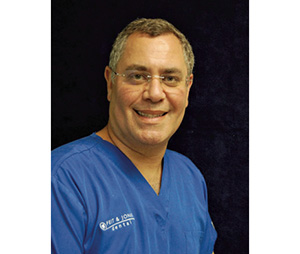
The Centers for Disease Control and Prevention have found that most adults consume between 12.5 and 13.5 percent of their total calories per day from added sugar. Children are consuming up to 16 percent of their calories per day from sugar. This large amount of sugar in daily diets contributes to a number of unhealthy conditions, including obesity, type-2 diabetes and a lack of important micronutrients that help to prime the immune system and help fight disease. The single most critical dietary change you can make to improve your health is to limit the amount of sugar you consume on a daily basis. Although this action may sound overwhelming to accomplish, a concerted effort will result in better overall health for you and your family.
Removing sugar from your diet can have dramatic health benefits, both in the short term and the long term. Some benefits of reducing your sugar intake include lowering cholesterol and triglyceride levels for better overall cardiovascular health, improved blood glucose levels and a reduction in risk for type-2 diabetes. In addition to better mental clarity, more stable moods, and improved sleep patterns, you may also lower your risk for certain types of cancers. Additionally, digestive health may improve and weight management will be easier. While most people only think that sugar is bad for your teeth, both overall health and dental health benefit enormously with limited sugar ingestion.
If you spend time walking through your local supermarket, reading the labels on your favorite foods, you will notice that every aisle is filled with products that contain sugar. It’s not only foods that you would expect contain sugar. You will find significant amounts of sugar and fructose in gravy, “healthy” cereals, spaghetti sauces and virtually every processed, “easy to fix” food. The prevalence of sugar as a flavoring in these products means that the human body is bombarded with sugar throughout the day. Sugar can cause inflammation in tissues and can prevent individuals from eating more nutritious foods that can help to ensure good health.
Today, consumers can find a wide variety of artificial sweeteners that provide the same satisfaction for their sweet tooth as sugar. Aspartame, sucralose, xylitol, mannitol and saccharin are some commonly used artificial sweeteners. However, these sweeteners often taste sweeter than sugar, which continues to train human taste buds to expect greater and greater amounts of sweetness. Use artificial sweeteners in a very limited fashion, only when you must have a bit of sweetness in your food or beverages. Otherwise, you will continue to crave larger amounts of sweet foods out of habit.
Many people believe that using honey, agave syrup or other natural sweeteners is safer than consuming white sugar. These sweeteners have a glycemic index almost as high as white sugar and affect blood sugar in exactly the same way. In addition, continuing to consume these sugars keeps your taste buds addicted to the flavor, which means you will continue to crave sweet foods.
Trying to wean yourself off sugar overnight can be a difficult proposition. However, you can reduce your overall consumption gradually, until your taste buds become accustomed to less-strongly-sweetened foods. By reading labels and making good choices while in the supermarket, and preparing more of the foods you eat, you will be able to control the amount of sugar you ingest. Drinking water and unsweetened beverages, and snacking on sugar-free foods such as nuts, seeds, popcorn and other non-sweetened items will dramatically reduce sugar intake. Week by week, continue to reduce the amount of sugar in your diet, until fruit is the only sweet item you use in yogurt, smoothies or cereal.
Learning new eating habits can take some time and work, but the reward is greater energy, better fitness and lowered risk for serious diseases in later life.
Dr. Daniel Feit, a specialist in prosthodontics, practices restorative dentistry with Diane Jonas, DMD, at 19 Franklin Street, Tenafly, New Jersey. He can be reached at 201-569-4535.












